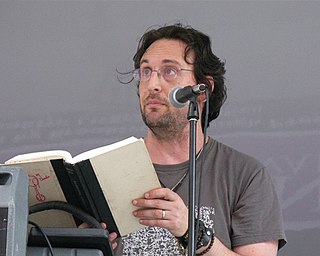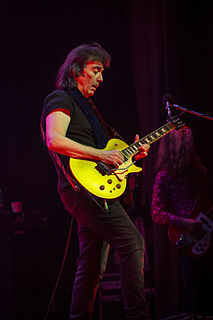A Quote by Sefi Atta
I don't have much of an imagination, but I have a mind bank of details, which I play with. It's how I daydream, so writing like that is natural for me.
Related Quotes
There's an old hymn called 'How Can I Keep from Singing?' That's what writing feels like to me. I have to write. It's intrinsic to who I am. So it was a natural choice for me to try to pursue writing as a career. Truthfully, though, I still daydream about how fun it would be to ride on the back of a garbage truck.
Writing is not a job or activity. Nor do I sit at a desk writing for inspiration to strike. Writing is like a different kind of existence. In my life, for some of the time, I am in an alternative world, which I enter through day-dreaming or imagination. That world seems as real to me as the more tangible one of relationships and work, cars and taxes. I don't know that they're much different from each other.
People will ask me, "How do you approach writing books for young readers differently than for adults?" My answer is always: I don't change anything about the story itself. I'm going to tell kids the way things really were. What I don't do - and this is the only thing I do differently in writing for kids - is that I don't revel in the gory details. I allow readers to fill in the details as necessary. But I don’t force kids to have to digest something they’re not mature enough or ready for yet. If they are, they can fill in the details even better than I could, just with their imaginations.
I went to the library and learned how checks work. I found out that routing numbers are like zip codes: the checks are sent to the bank that correlates to the routing number. If I manipulate those numbers to a bank far away, it would take longer to get back to the bank, which gave me more time to write more bad checks.
There is much in the Bible against which every instinct of my being rebels, so much that I regret the necessity which has compelled me to read it through from beginning to end. I do not think that the knowledge which I have gained of its history and sources compensates me for the unpleasant details it has forced upon my attention.
When I'm recording, which is synonymous with writing, I'll play things over and over again until it sounds like I've got the right guitar part. Whereas I think, as the much younger player I tended to do things much more consciously. I didn't wait for the moment where inspiration might strike. That's what I do now. I wait for it to naturally start to replay itself in my mind. As I say, I don't force it. So I like to think of myself as a receiver. I'm a telephone line to who knows where, but until I hear it through that receiver, I don't usually do it. It's got to start writing itself somehow.





































